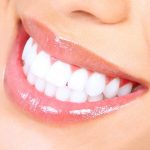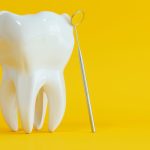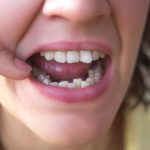Why Bottom Teeth Feel Ticklish: Causes and Remedies
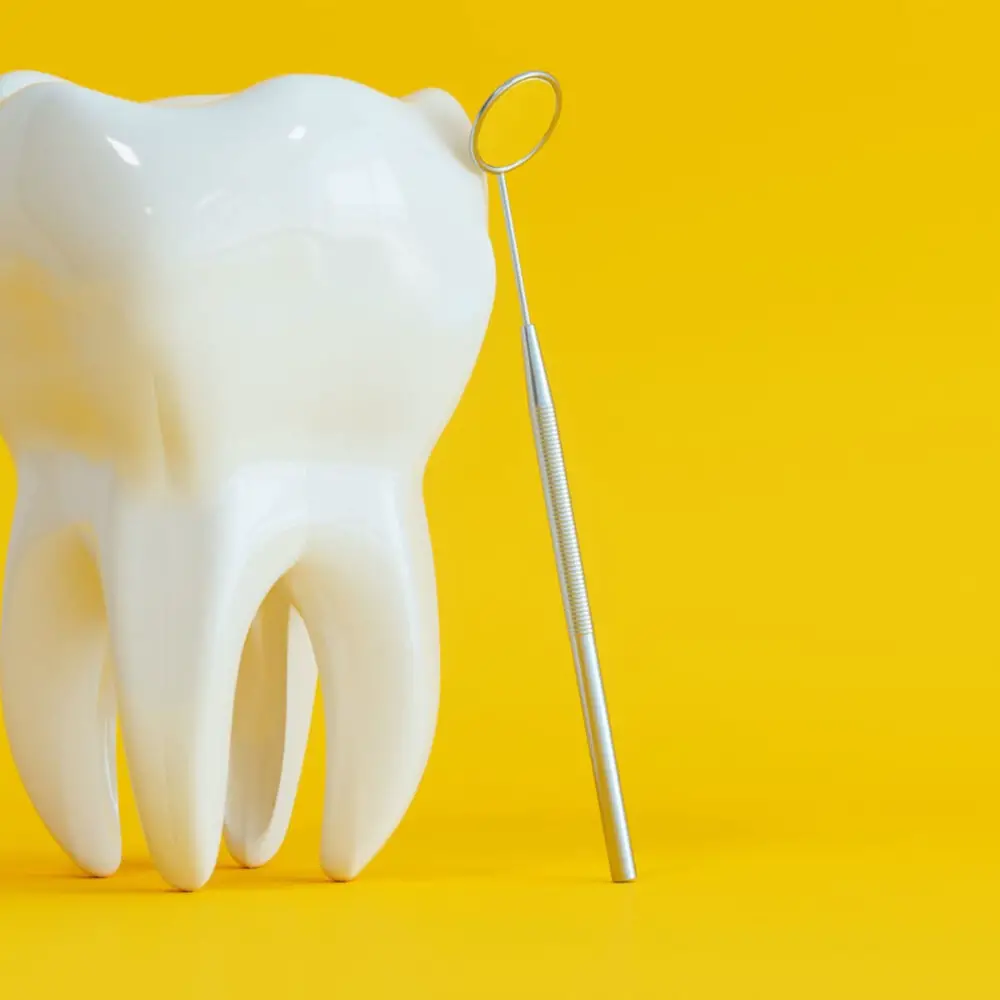
The sensation of having ticklish bottom teeth can be an uncomfortable and perplexing experience. Many people report feeling a tingling or itching sensation in their lower teeth when they eat or drink certain foods or beverages. While this sensation may seem harmless, it can be a sign of an underlying dental issue that needs attention. In this article, we’ll explore the causes of ticklish bottom teeth, as well as some remedies to help alleviate the discomfort. One of the most common causes of ticklish bottom teeth is tooth sensitivity. This occurs when the protective enamel on the teeth wears away, exposing the sensitive dentin underneath. When this happens, the nerves in the teeth can become more easily stimulated, causing a tingling or prickling sensation. Tooth sensitivity can be caused by a variety of factors, including tooth decay, gum disease, aggressive brushing, and even certain medical conditions. If you’re experiencing ticklish bottom teeth, it’s important to talk to your dentist about your symptoms so they can determine the underlying cause and recommend an appropriate treatment.
The sensation of ticklishness in the bottom teeth can be an unpleasant and discomforting experience. It is often described as a tingling or prickling feeling that occurs when something touches the teeth or gums. This sensation is caused by the activation of nerve endings in the teeth and gums, which are highly sensitive to touch. The nerve endings send signals to the brain, which interprets the sensation as ticklishness. There are various factors that can contribute to this sensation, including tooth decay, gum disease, teeth grinding, and even stress. However, there are remedies available to alleviate the sensation, such as practicing good oral hygiene, using desensitizing toothpaste, and wearing a mouthguard while sleeping to prevent nighttime teeth grinding.
Understanding the causes and remedies of any physical discomfort is crucial, as it enables individuals to take appropriate steps to alleviate their discomfort. In the case of bottom teeth feeling ticklish, the causes could range from mild to severe, such as dental cavities, gum disease, or nerve damage. By identifying the underlying cause, individuals can seek timely treatment, which can prevent any further damage or pain. Remedies for ticklish teeth could include maintaining good oral hygiene, using a fluoride toothpaste, or undergoing professional dental cleaning. Ignoring the ticklish sensation in the bottom teeth could lead to severe dental problems, which could ultimately result in tooth loss. Therefore, understanding the causes and remedies of ticklish bottom teeth is vital for maintaining good oral health and overall well-being.
Causes of Ticklish Bottom Teeth
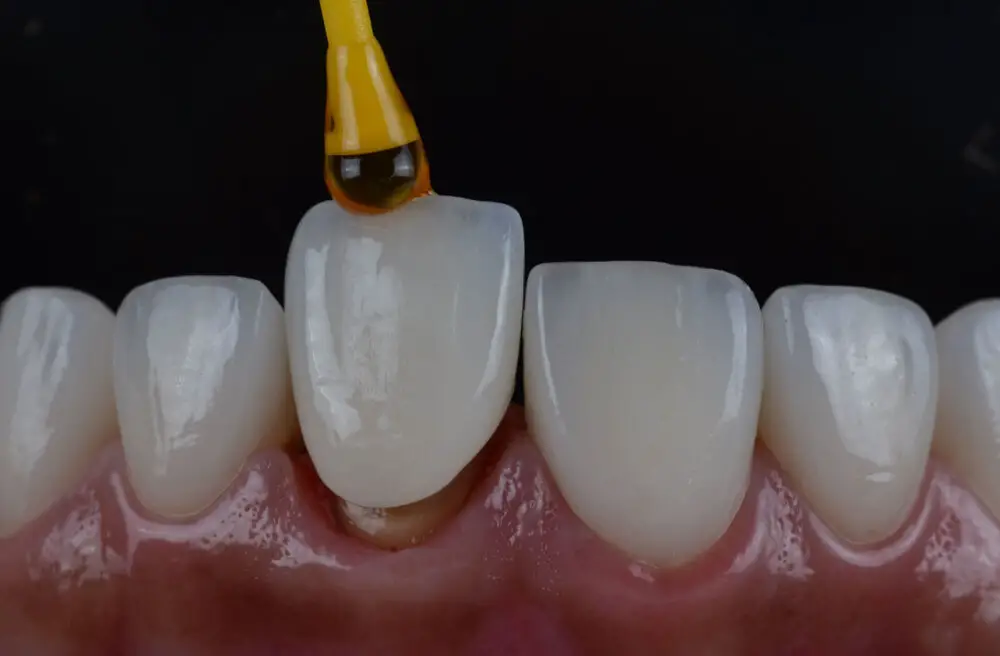
Ticklish bottom teeth can be a frustrating and uncomfortable experience for many individuals. There are various causes of ticklish bottom teeth, including gum recession, tooth decay, and tooth sensitivity. Gum recession can occur due to a variety of reasons, such as age, aggressive brushing, or gum disease. When the gums recede, the sensitive root of the tooth becomes exposed, making it susceptible to tickling sensations. Tooth decay is another common cause of ticklish bottom teeth. When cavities form in the teeth, they can cause sensitivity and tickling sensations. Decay can occur due to poor oral hygiene habits, a high sugar diet, or other factors. Tooth sensitivity is also a potential cause of ticklish bottom teeth. This can occur when the protective enamel on the teeth wears away, exposing the sensitive inner layers. Sensitive teeth can be caused by a variety of factors, such as acidic foods and drinks, over-brushing, or grinding teeth. It is important to identify the underlying cause of ticklish bottom teeth in order to properly address the issue and find a solution that works best for each individual.
Overstimulation of dental nerves can cause the sensation of ticklishness in the bottom teeth. This can happen due to a number of reasons, such as excessive brushing, teeth grinding, or even acidic foods and drinks. When the nerves in the teeth are overstimulated, they send signals to the brain that can be interpreted as a tickling sensation. This feeling can be uncomfortable and even painful for some individuals. To remedy this, it is important to practice good oral hygiene habits, avoid acidic foods and drinks, and potentially seek professional dental care.
Oral infections are a common problem that affects many people. These infections can be caused by a variety of factors, including poor dental hygiene, bacteria, viruses, and fungi. Symptoms of oral infections include pain, swelling, redness, and a foul taste in the mouth. In some cases, oral infections can lead to serious complications, such as abscesses, which can spread to other parts of the body. Treatment for oral infections usually involves antibiotics, antifungal medications, or antiviral drugs, depending on the underlying cause of the infection. In addition to medication, proper oral hygiene, including regular brushing and flossing, can help prevent oral infections from occurring in the first place.
Acidic foods and drinks can be a major culprit in causing ticklish sensations in the bottom teeth. Consuming foods and drinks that are high in acidity, such as citrus fruits, tomato-based products, and carbonated beverages, can erode the enamel on teeth over time. This erosion can lead to sensitivity and discomfort, especially when consuming hot or cold foods and drinks. It is important to be mindful of your diet and limit your intake of acidic foods and drinks to maintain the health of your teeth and prevent ticklish sensations. Additionally, incorporating practices such as using a desensitizing toothpaste or dental bonding can help alleviate discomfort and protect your teeth from further damage.
Teeth grinding or clenching, also known as bruxism, is a common condition that can lead to a variety of dental problems. It can be caused by stress, anxiety, or even an abnormal bite. The constant grinding or clenching of teeth can wear down the enamel, causing sensitivity and even tooth loss. Additionally, it can cause headaches, jaw pain, and even earaches. Treatment options for bruxism include wearing a mouthguard at night, stress management techniques, and in severe cases, medication. It is important to seek treatment for bruxism to prevent further damage to the teeth and alleviate discomfort.
While bottom teeth feeling ticklish can be attributed to various causes such as dental problems or nerve damage, allergies and sensitivities should not be overlooked. Certain foods or drinks, such as citrus fruits, carbonated beverages, or even toothpaste with certain ingredients, can cause an allergic or sensitivity reaction in some individuals. This can lead to a tingling or tickling sensation in the teeth and gums, as well as other symptoms such as swelling or redness. It is important to identify and avoid trigger substances, and consult with a healthcare professional if the symptoms persist or worsen.
Remedies for Ticklish Bottom Teeth
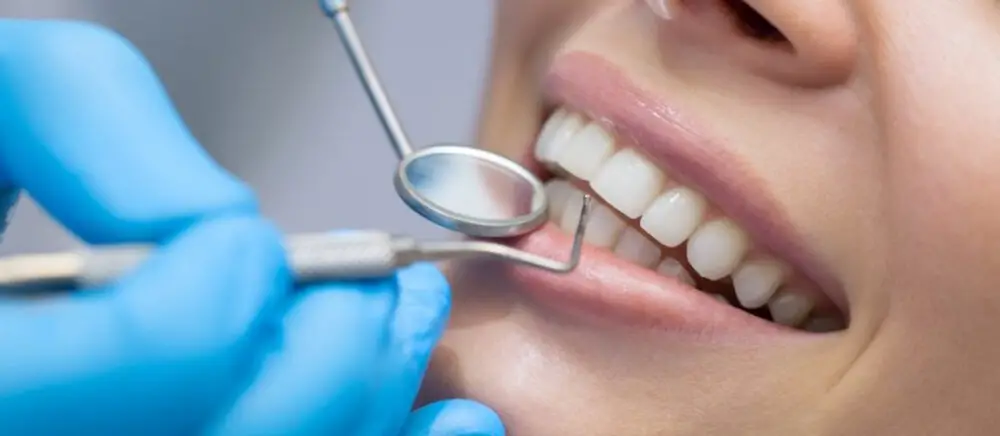
Bottom teeth can feel ticklish due to a variety of reasons. It could be due to tooth decay, gum disease, or dental work. Whatever the cause may be, it can be quite uncomfortable and even painful. Fortunately, there are several remedies that can help alleviate the ticklish sensation in your bottom teeth. One of the most effective remedies is to practice good oral hygiene. Brushing your teeth twice a day, flossing regularly, and using mouthwash can help keep your teeth and gums healthy and prevent ticklish sensations. Additionally, avoiding sugary foods and drinks can also help prevent tooth decay, which can lead to ticklish bottom teeth. Another remedy for ticklish bottom teeth is to use desensitizing toothpaste. This type of toothpaste contains ingredients that can help numb the nerves in your teeth and alleviate any sensitivity or ticklish sensation. You can also use a fluoride mouthwash to strengthen your teeth and reduce sensitivity. If the ticklish sensation is due to dental work, such as a filling or crown, your dentist may be able to adjust the work to alleviate the ticklish sensation. In some cases, a night guard may also be recommended to protect your teeth and reduce sensitivity while you sleep. By taking these steps, you can find relief from ticklish bottom teeth and maintain good oral health.
Brushing and flossing regularly are crucial for maintaining good oral hygiene and preventing various dental problems, including the ticklish sensation in the bottom teeth. Brushing teeth twice a day with a fluoride toothpaste can help remove plaque and food particles that accumulate on the teeth and gums, causing bacteria to grow and produce acid that damages tooth enamel. Flossing daily can remove plaque and food debris from between the teeth and along the gum line, where a toothbrush cannot reach. By adopting these healthy habits, individuals can keep their teeth and gums healthy, prevent bad breath, and reduce the risk of developing ticklish sensations in their bottom teeth.
Desensitizing toothpaste is a popular remedy for those who experience ticklish sensations in their bottom teeth. These toothpastes contain active ingredients, such as potassium nitrate or strontium chloride, that help to block pain signals from reaching the tooth nerve. When used regularly, desensitizing toothpaste can help to reduce tooth sensitivity and discomfort. However, it is important to note that desensitizing toothpaste should not be used as a substitute for proper dental care. Regular brushing, flossing, and dental check-ups are essential to maintaining healthy teeth and gums. If ticklish sensations persist, it is advisable to consult a dentist to rule out any underlying dental issues.
If you’re experiencing ticklish sensations in your bottom teeth, it may be due to the erosion of tooth enamel caused by acidic foods and drinks. To prevent this sensation, it’s important to avoid consuming acidic foods and drinks such as citrus fruits, sodas, and fruit juices. Instead, opt for alkaline foods such as leafy greens, nuts, and whole grains that can help neutralize the acidity in your mouth. Additionally, make sure to rinse your mouth with water after consuming acidic foods and drinks, and wait at least 30 minutes before brushing your teeth to avoid further damage to your enamel. By adopting these simple habits, you can protect your tooth enamel and reduce the ticklish sensation in your bottom teeth.
Wearing a night guard is a proactive approach to reducing ticklish sensations in the bottom teeth caused by grinding or clenching. This dental appliance acts as a cushion, absorbing the pressure from teeth grinding and distributing it evenly across the teeth. The night guard also prevents the teeth from touching, reducing the risk of enamel erosion and tooth sensitivity. It is important to note that a custom-fitted night guard from a dentist is the best option, as it provides maximum comfort and protection. Additionally, maintaining good oral hygiene habits and reducing stress levels can further alleviate teeth grinding and ticklish sensations in the bottom teeth.
If you are experiencing ticklish sensations in your bottom teeth, seeking professional dental treatment is crucial to determine the underlying cause and find appropriate remedies. Your dentist will conduct a thorough examination of your teeth and gums, as well as review your medical history to identify any potential factors contributing to the issue. Possible causes of ticklish bottom teeth may include tooth decay, gum disease, teeth grinding, or nerve damage. Depending on the diagnosis, treatment options may include dental fillings, scaling and root planing, night guards, or even referral to a specialist. Ignoring the symptoms can lead to further dental complications and discomfort, so it is important to address the issue promptly with the help of a dental professional.
Prevention Tips

Preventing ticklish feelings in the bottom teeth can be achieved through various measures. One of the most effective ways to prevent ticklish sensations is to maintain proper dental hygiene. Brushing and flossing daily can help to remove food particles and plaque that can cause sensitivity in the teeth. Additionally, using a fluoride toothpaste can help to strengthen the enamel of the teeth, making them more resistant to sensitivity. It is also important to avoid consuming acidic or sugary foods and drinks, as they can erode the enamel and lead to sensitivity. In addition to these measures, wearing a mouthguard during sports or other physical activities can prevent damage to the teeth and reduce the risk of sensitivity. Another way to prevent ticklish feelings in the bottom teeth is to address any underlying dental issues. For example, if a person has gum disease or tooth decay, these conditions can cause sensitivity in the teeth. Visiting a dentist regularly can help to identify and treat these issues before they become more serious. Additionally, if a person has a habit of grinding their teeth or clenching their jaw, they may experience sensitivity in their teeth. In this case, a dentist may recommend a mouthguard or other treatment to prevent further damage to the teeth. By taking these preventative measures, individuals can reduce their risk of ticklish sensations in their bottom teeth and maintain good dental health.
Maintaining good oral hygiene is crucial for overall health and well-being. Regular brushing, flossing, and dental check-ups can help prevent tooth decay, gum disease, and other oral health problems. It is recommended to brush twice a day for at least two minutes with fluoride toothpaste and to floss once a day to remove plaque and food particles from between the teeth. Additionally, using mouthwash can help kill bacteria and freshen breath. A healthy diet low in sugar and high in fruits and vegetables can also promote good oral health. By taking care of your teeth and gums, you can prevent discomfort, ticklishness, and other oral health issues.
It is highly recommended to wear a mouthguard during physical activities to prevent any dental injuries that may cause discomfort or pain. A mouthguard provides a layer of protection for the teeth, gums and jaw, reducing the risk of chipping, cracking or even losing a tooth. Not only does it protect your oral health, but it also improves your performance by reducing the impact of sudden blows or hits to the mouth. Investing in a well-fitted mouthguard can save you from the discomfort of ticklish or sensitive bottom teeth caused by physical activities. So, don’t hesitate to take action to prevent dental injuries and improve your physical performance.
Being aware of teeth clenching and grinding is crucial for maintaining good oral health. This condition, also known as bruxism, can lead to a range of dental problems, including tooth sensitivity, enamel erosion, and even jaw pain. It is often caused by stress and anxiety, but can also be a side effect of certain medications or a misaligned bite. If left untreated, it can result in long-term damage to the teeth and jaw. To combat bruxism, a number of remedies exist, including stress-reducing techniques, mouthguards, and even Botox injections. By taking steps to prevent teeth clenching and grinding, individuals can ensure that their dental health remains in top condition.
Regular dental checkups and cleanings are essential to maintain good oral health. These visits allow the dentist to identify any issues with the teeth and gums before they become a bigger problem. During the check-up, the dentist will examine the teeth and gums, look for cavities or signs of gum disease, and perform a cleaning to remove any built-up plaque or tartar. Neglecting regular dental checkups can lead to a variety of dental problems, including tooth decay, gum disease, and even tooth loss. It is recommended to visit the dentist at least twice a year for routine checkups and cleanings to keep your teeth healthy and prevent any issues from developing.
Bottom teeth feeling ticklish can be caused by a variety of factors, including dental issues such as cavities, gum disease or tooth decay. Poor oral hygiene, teeth grinding, and sensitivity to certain foods or drinks can also contribute to this sensation. Fortunately, there are several remedies available to alleviate this discomfort. Regular brushing and flossing can prevent dental problems, while using desensitizing toothpaste can help with sensitivity. Additionally, reducing stress levels and avoiding acidic or sugary foods and drinks can reduce the likelihood of teeth grinding and other contributing factors. In more severe cases, consulting a dentist or dental professional may be necessary for further treatment options.
When experiencing ticklish sensations in the bottom teeth, it is crucial to seek professional dental advice. A qualified dentist can examine the affected area, identify the root cause of the problem, and recommend appropriate remedies. Ignoring the issue can lead to further complications, such as tooth decay or gum disease. Additionally, seeking professional dental advice can provide valuable information on maintaining good oral hygiene and preventing future dental problems. Therefore, it is essential to prioritize our dental health and seek professional help whenever necessary.
While it’s important to address any immediate concerns related to oral health, it’s equally important to focus on preventative measures for long-term oral health. This includes developing good habits such as brushing and flossing regularly, using mouthwash, and avoiding sugary and acidic foods and drinks. Additionally, regular dental checkups and cleanings can help identify and prevent issues before they become more serious. It’s important to take a proactive approach to oral health in order to maintain a healthy smile and avoid potential discomfort or pain in the future.
Conclusion
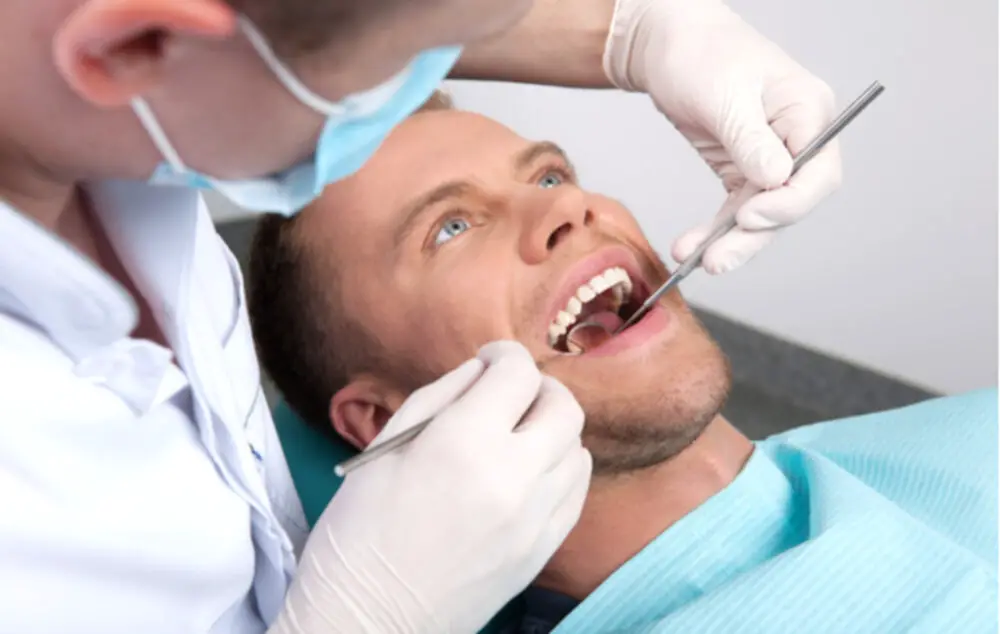
In conclusion, bottom teeth feeling ticklish can be caused by a variety of factors, such as dental issues, anxiety, or even genetics. However, there are several remedies available to alleviate this discomfort, including practicing good oral hygiene, using desensitizing toothpaste, or seeking professional dental treatment. It is important to address this sensation as it can affect one’s daily life and cause unnecessary stress. By taking the necessary steps to identify and treat the underlying cause, individuals can enjoy a healthier and more comfortable oral experience.
